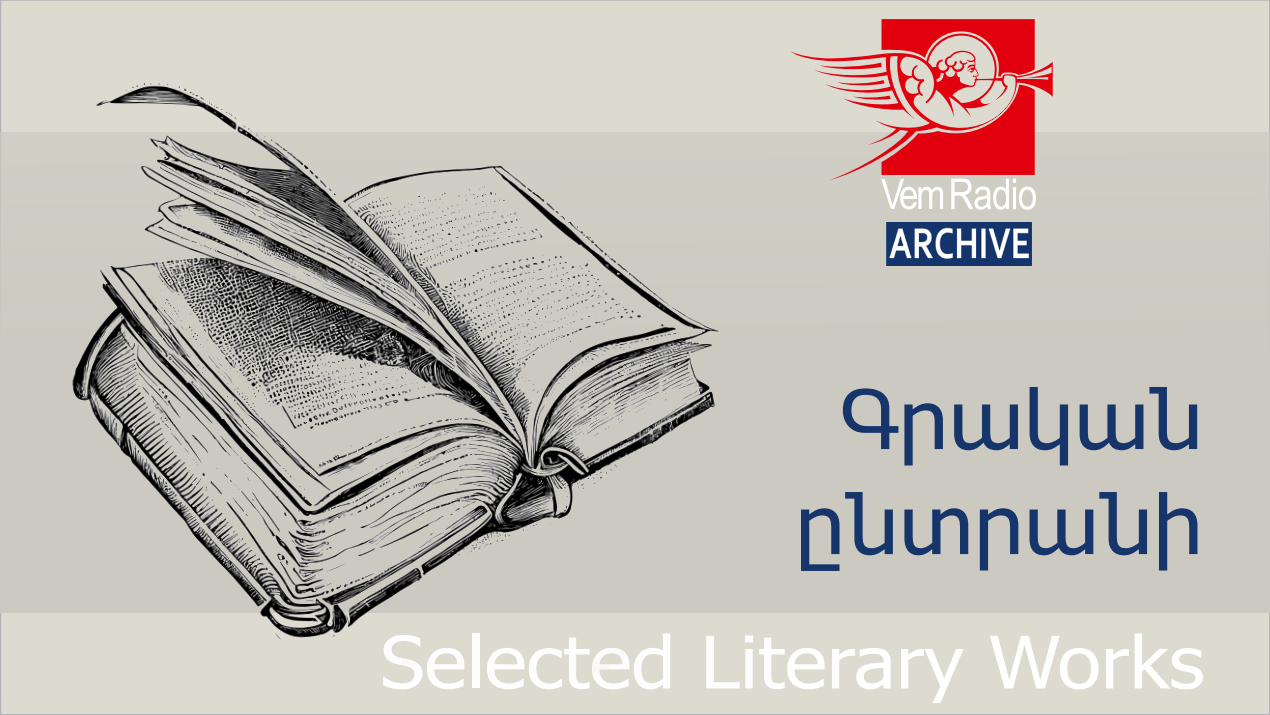
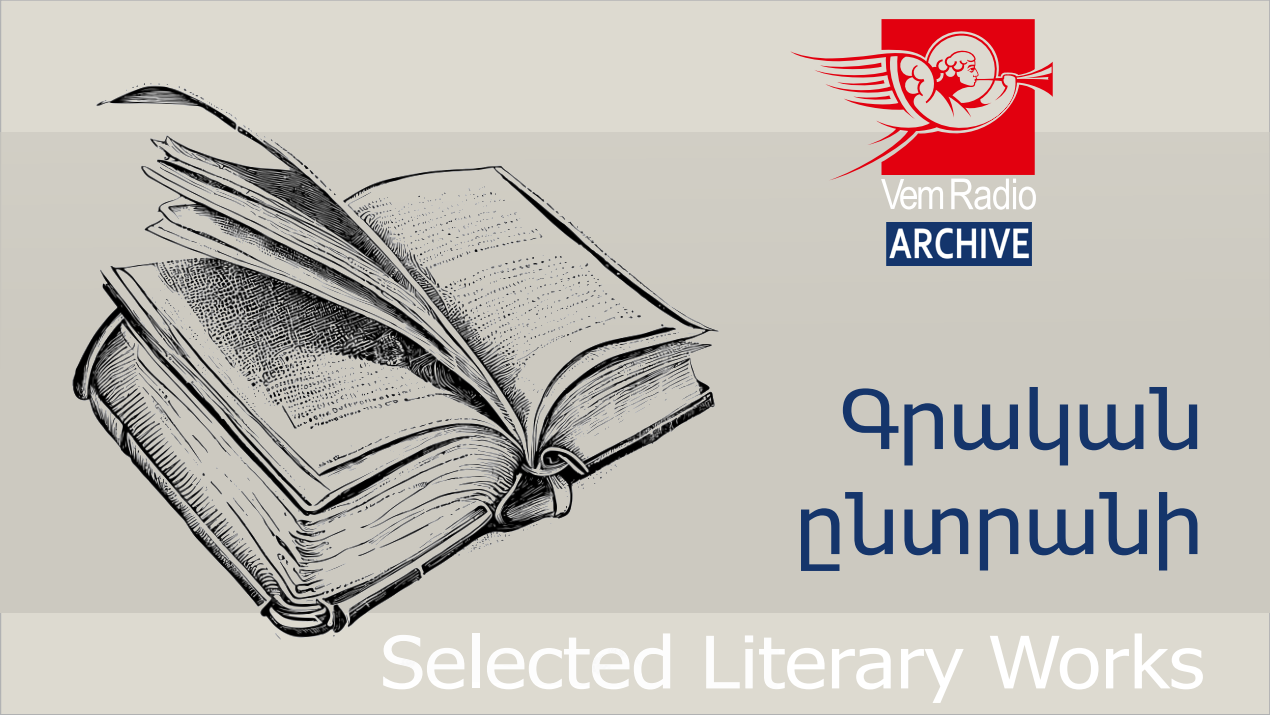
Selected Literary Works
Remarkable writers of the 20th century and their most famous works.
The literary paths taken by modern Armenian writers, and their literary achievements
- Host - Ani Pashayan

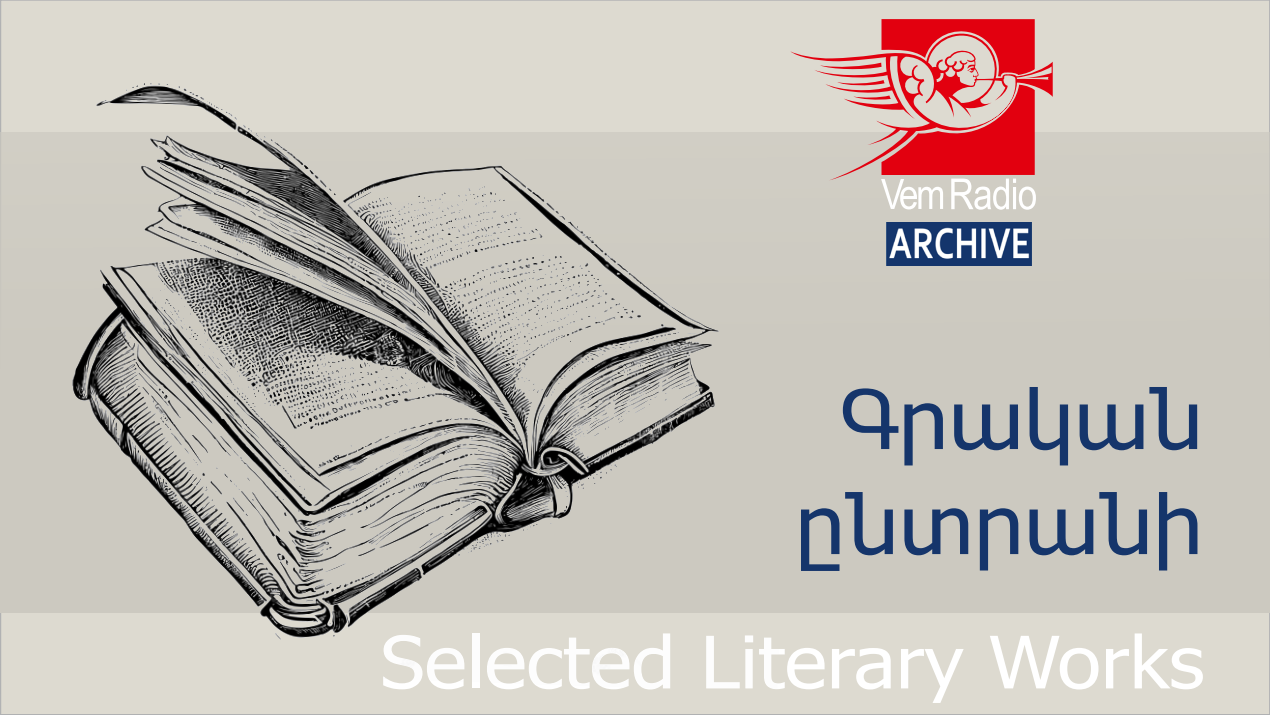
Yukio Mishima
The broadcast is dedicated to Japanese prose writer and playwright Yukio Mishima who established an interesting and extraordinary connection between a writer and readers. Yes, it is possible to read him with interest without sharing his ideas and without following his conclusions. But even in this case, his work and person continue remaining in the center of attention in the entire world. Mishima gained fame especially for his novel "The Temple of the Golden Pavilion" where he created the new Herostratus of his times.

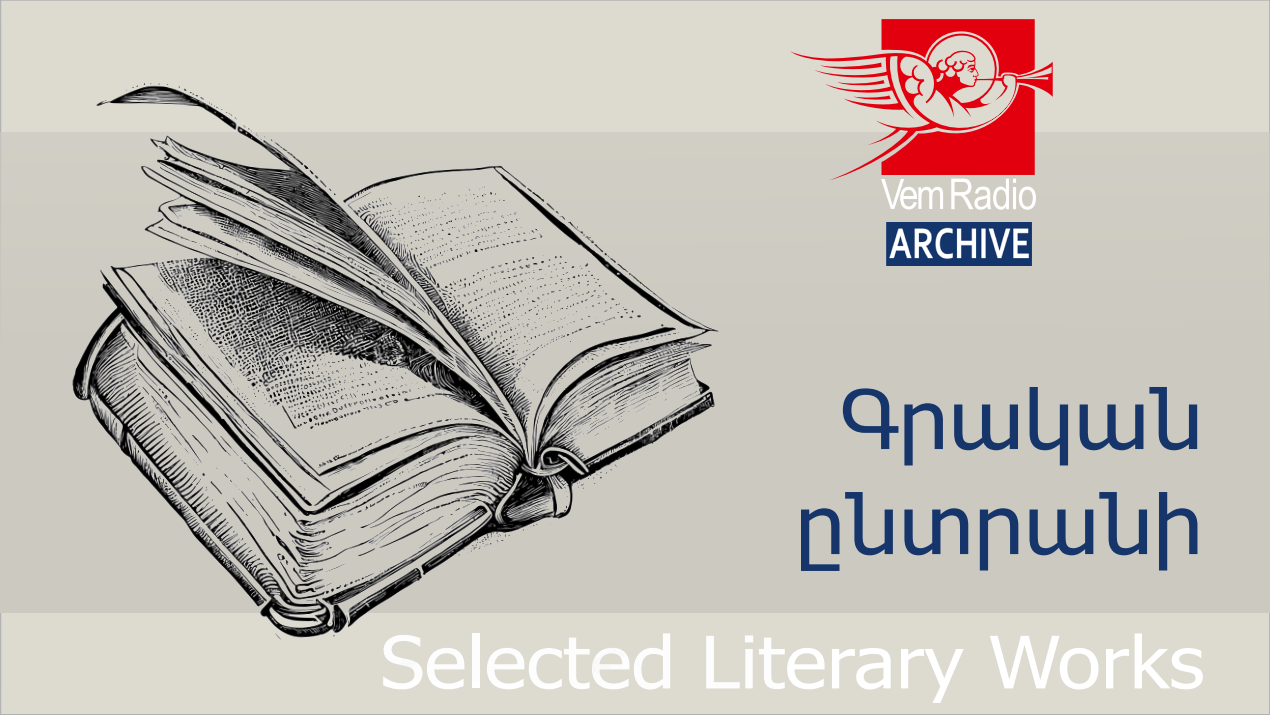
Stefan Zweig
The broadcast is dedicated to Austrian writer, literary critic, playwright and essayist Stefan Zweig, whose novels opened a new page in the history of the world literature thanks to their sincereness and profoundness. He became famous especially for his works “The Royal Game,” “Amok,” “Confusion of Feelings,” and “Letter from an Unknown Woman.” He called his “Maria Stuart” a biographical novel. Recounting Maria Stuart’s happy days and her harsh years, the writer ponders on freedom and its boundaries…

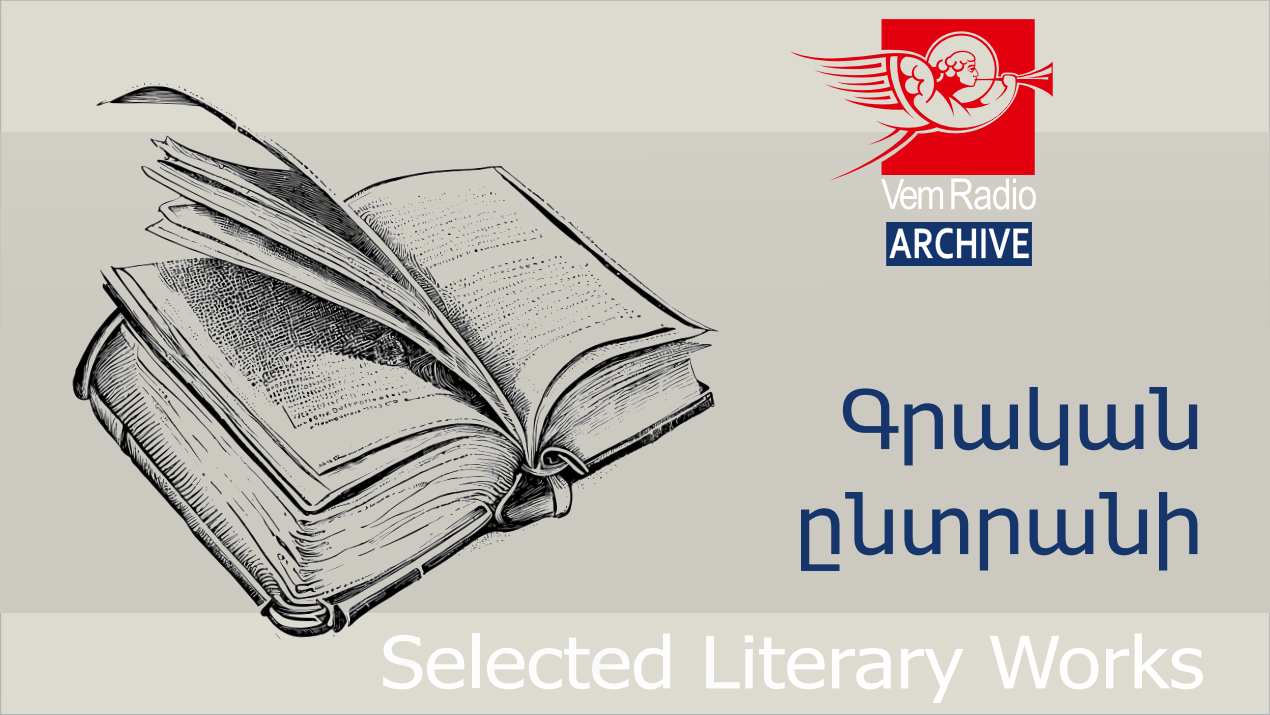
Antoine de Saint-Exupéry
The broadcast is dedicated to the French writer and military aviator Antoine de Saint-Exupéry, who became world-wide famous for his philosophical novella "The Little Prince." It is very possible that Saint-Exupéry wrote here about himself and unveiled his soul in the image of the little child who was concerned about the future of the Earth and the whole Universe. No coincidence that he wrote this during World War II, when his homeland was also in danger. This wise tale is interesting for people of all ages and remains actual to this day.

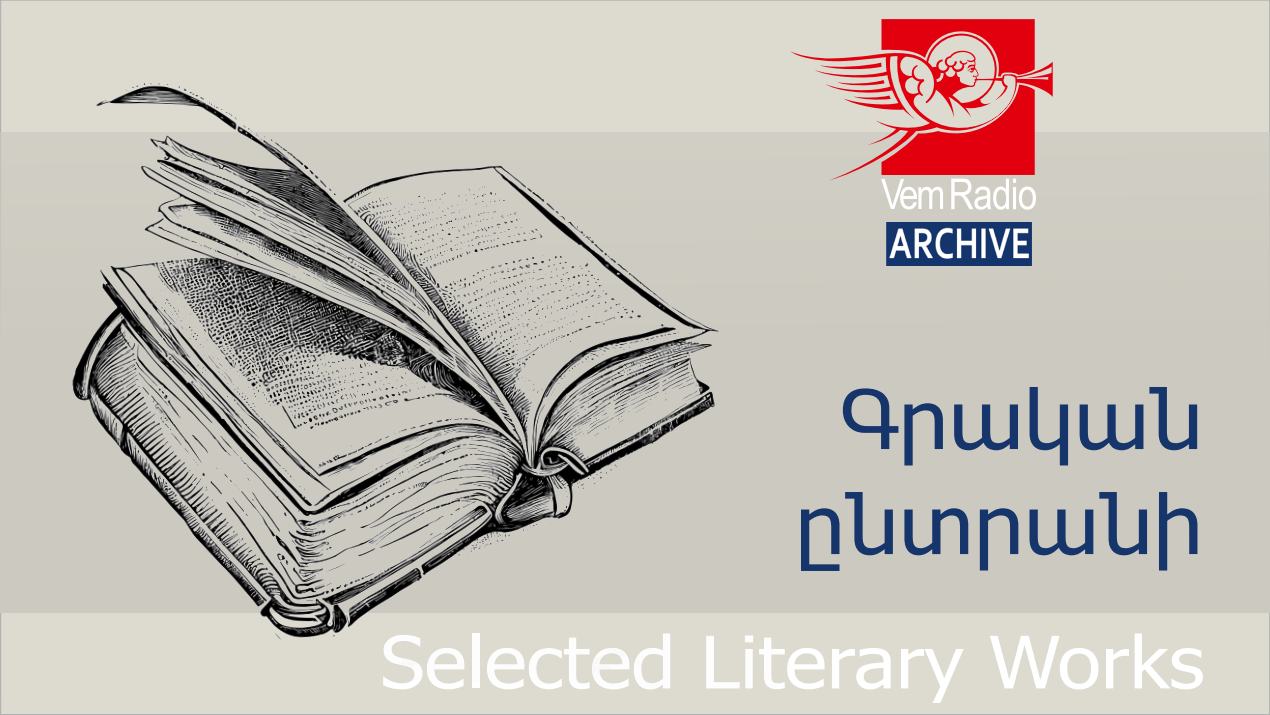
François Mauriac
The broadcast is dedicated to French poet, playwright, essayist, and publicist, Nobel Prize winner François Mauriac. He became more known as a master of social-psychological novels. His novels "A Kiss to the Leper," "Thérèse Desqueyroux," and "The Knot of Vipers" brought a great fame to him. When the Fascist army conquered his homeland, he wrote that even if we see the shame surrounding us and feel it in our souls, we should not despair and lose our trust in human; this is the sense of our life and survival.

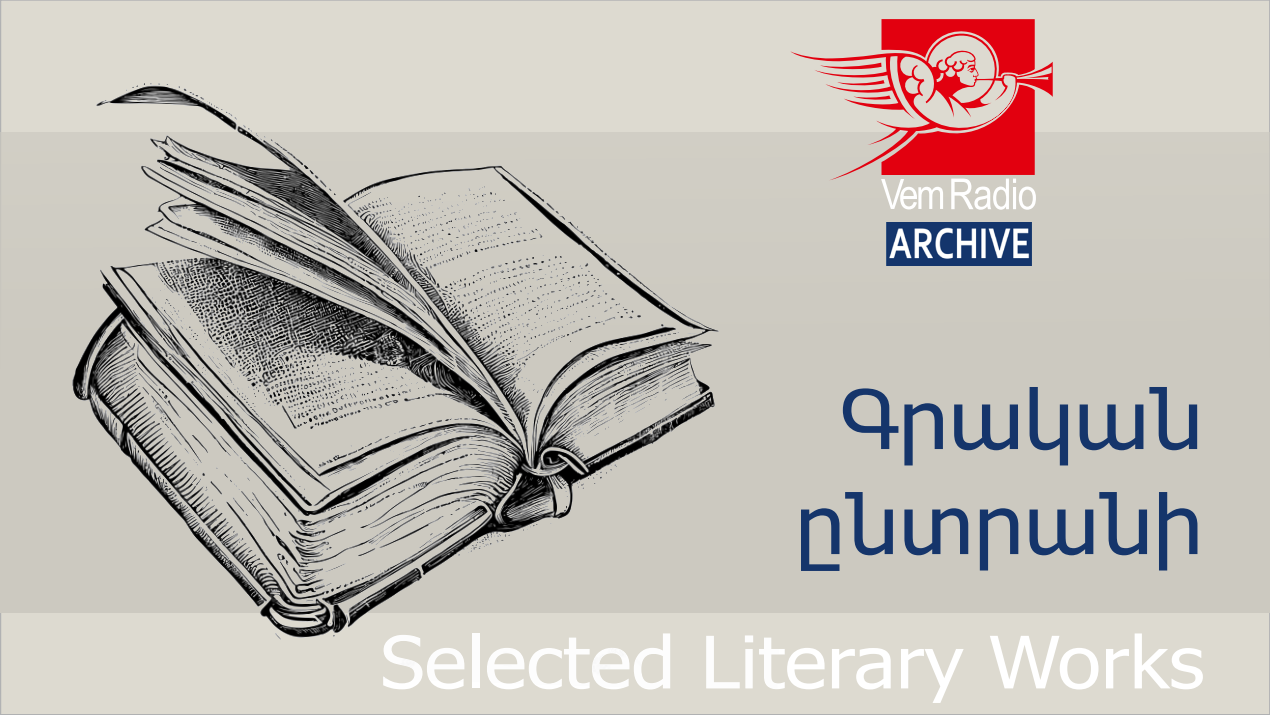
Jean-Paul Sartre
The broadcast is dedicated to French philosopher, novelist, playwright, Nobel Prize winner Jean-Paul Sartre. The core of his philosophical views is the idea of freedom, which is the essence of human behavior, source of activity, and the only opportunity of human existence, according to Sartre. These views are reflected in his literature, especially in his famous novel "Nausea," in the trilogy "The Roads to Freedom," in the collection of stories "The Wall," in his autobiographical novel "The Words," and in many other works.

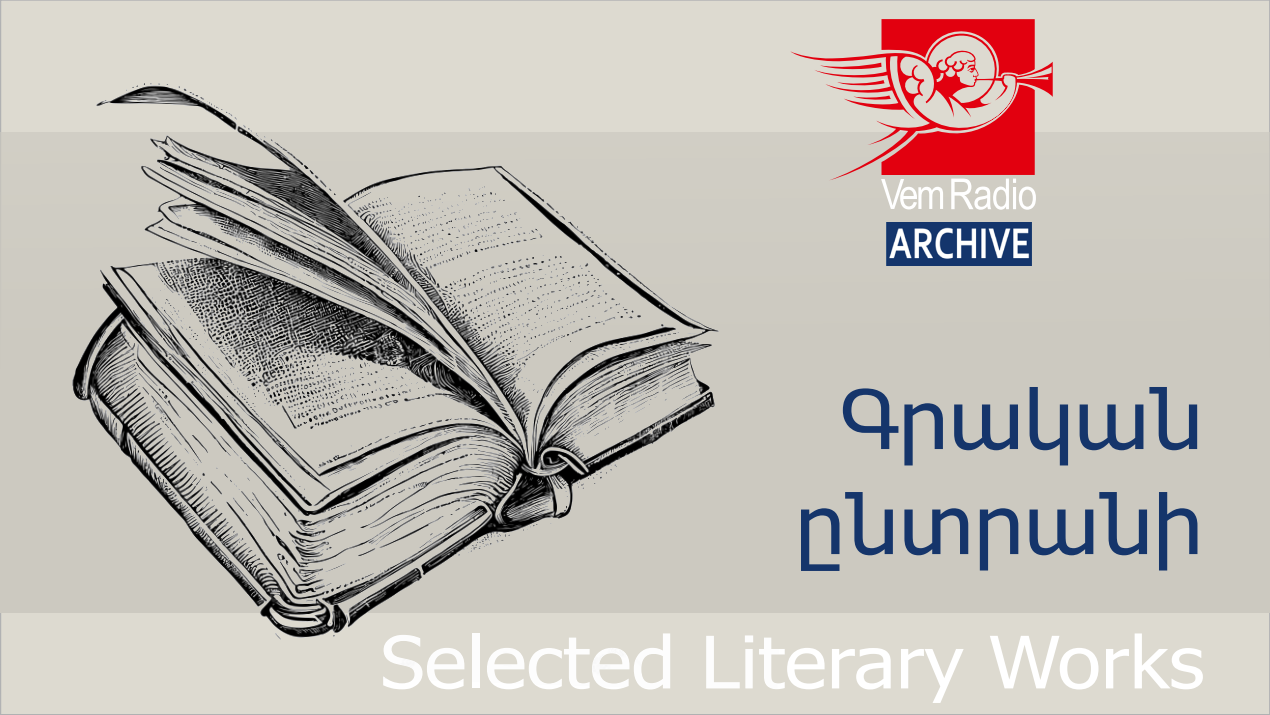
André Gide
The broadcast is dedicated to French writer, famous author of the novel “The Counterfeiters” André Gide, who was awarded the Nobel Prize in 1947 for his highly artistic and profound literature where human problems are presented in a glorious love for the truth and in psychological depth. Of great interest is also his book “Return from the USSR” which caused heated debates and conflicting opinions in the literary and public life.

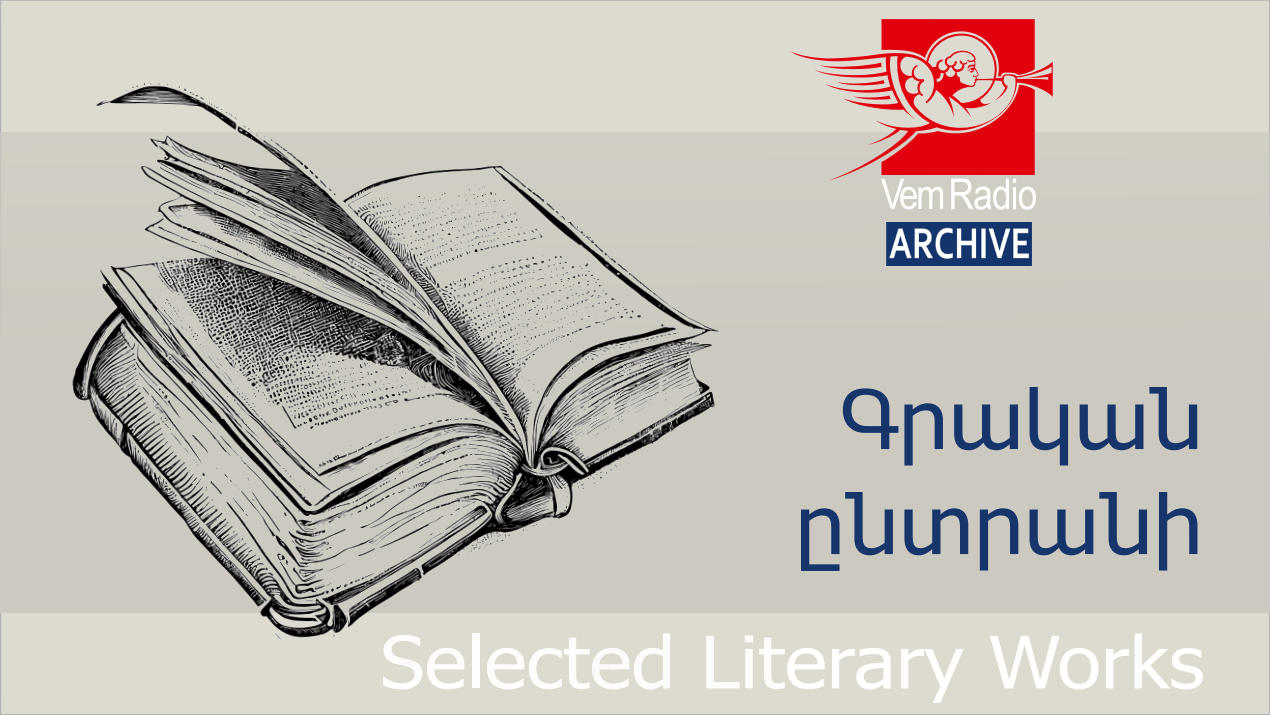
Kōbō Abe
The broadcast is dedicated to Japanese prose writer and playwright Kōbō Abe who especially gained fame thanks to these three novels: "The Woman in the Dunes," "The Face of Another," and "The Ruined Map." His protagonists are individuals who run from the world and reality and who desire to preserve their souls, fight, and overcome hard situations. The plays of Abe, who has won many literary prizes, are also very popular. They were staged by the author himself in the Kōbō Abe Studio created by him.

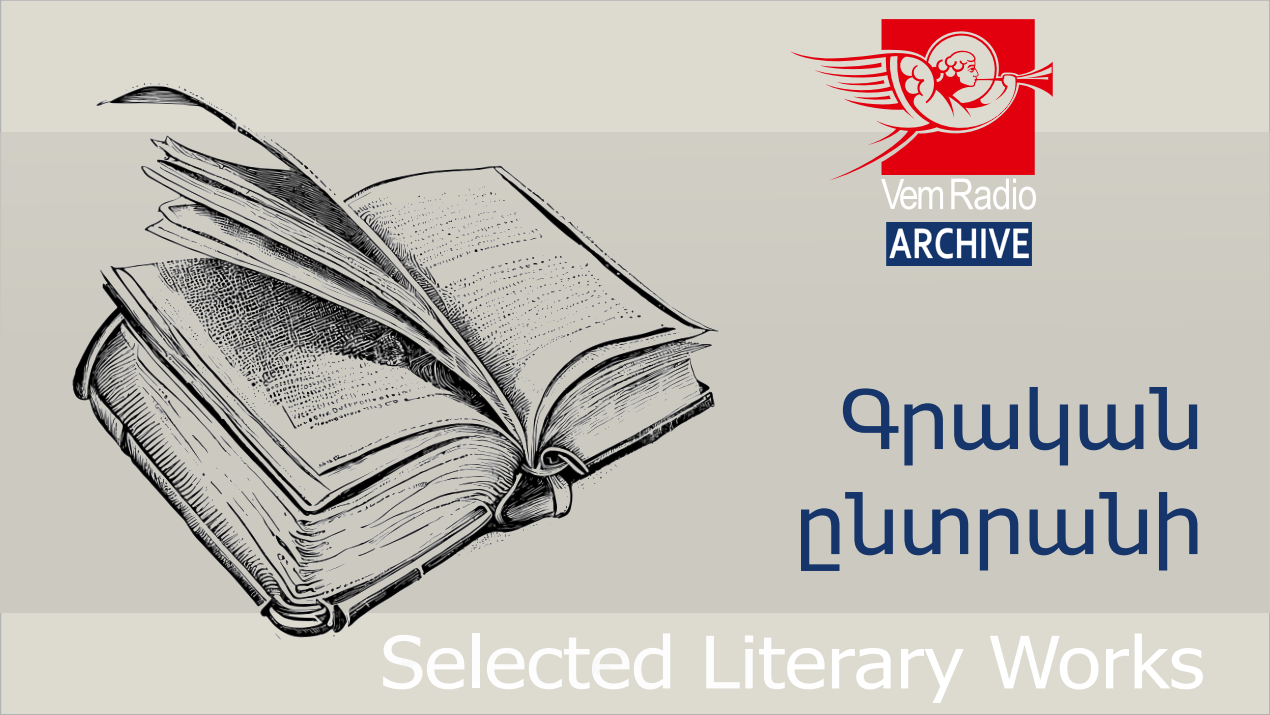
Yasunari Kawabata
The broadcast is dedicated to Japanese classic, Nobel Prize winner Yasunari Kawabata who is called the most Japanese prose writer by literary critics. His novels "Thousand Cranes," "Snow Country," "The Sound of the Mountain" as well as the short story "The Dancing Girl of Izu" made him famous worldwide. Kawabata valued in his works the national customs of his people, especially the tea ritual and the veneration of Sakura blossoms and of the sunrise over Mount Fuji, maintaining simplicity and sincerity of the style.

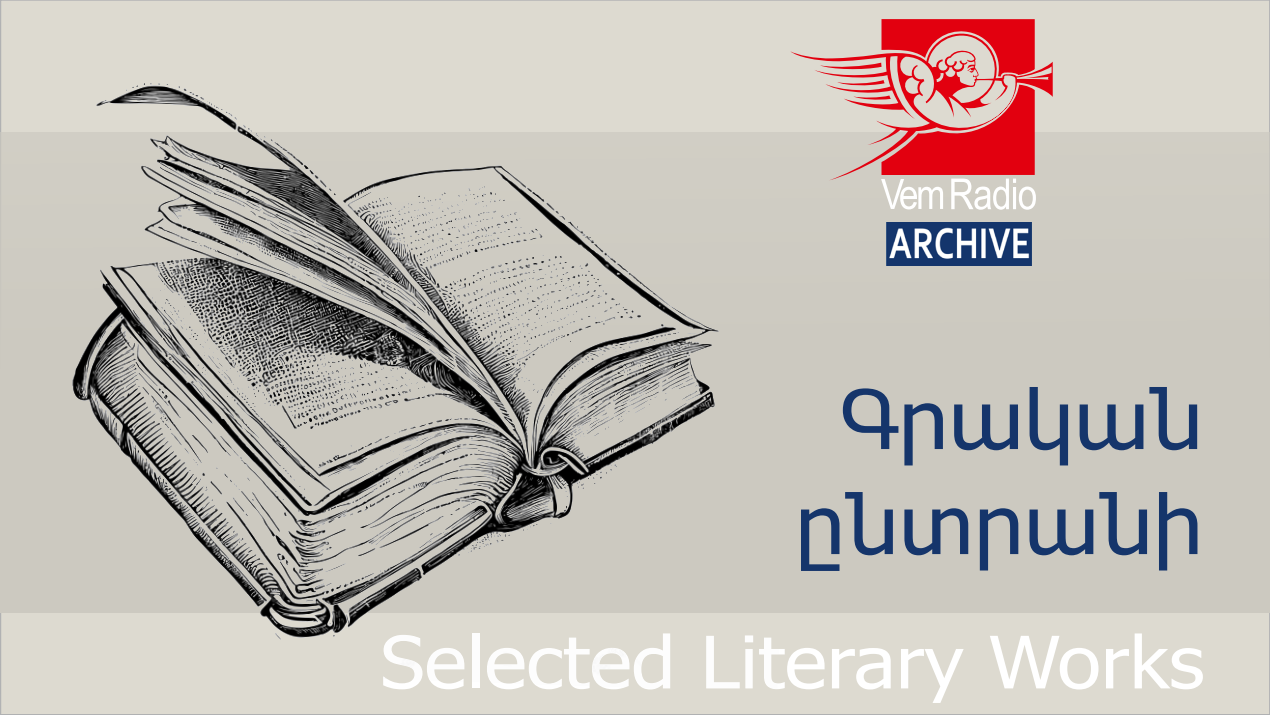
George Bernard Shaw
The broadcast is dedicated to the English playwright, founder of the social drama of the 20th century, the novelist and public figure, Nobel Prize winner George Bernard Shaw. Some of his plays such as "The Apple Cart," "Heartbreak House," "Saint Joan," "Too True to Be Good" express universal ideas that are still relevant today. Interesting is the fact that Show's dramaturgy that was not easily accepted on English stages received a world-wide acclaim and became one of the central phenomena of the literature of the 19th to the first half of the 20th century.

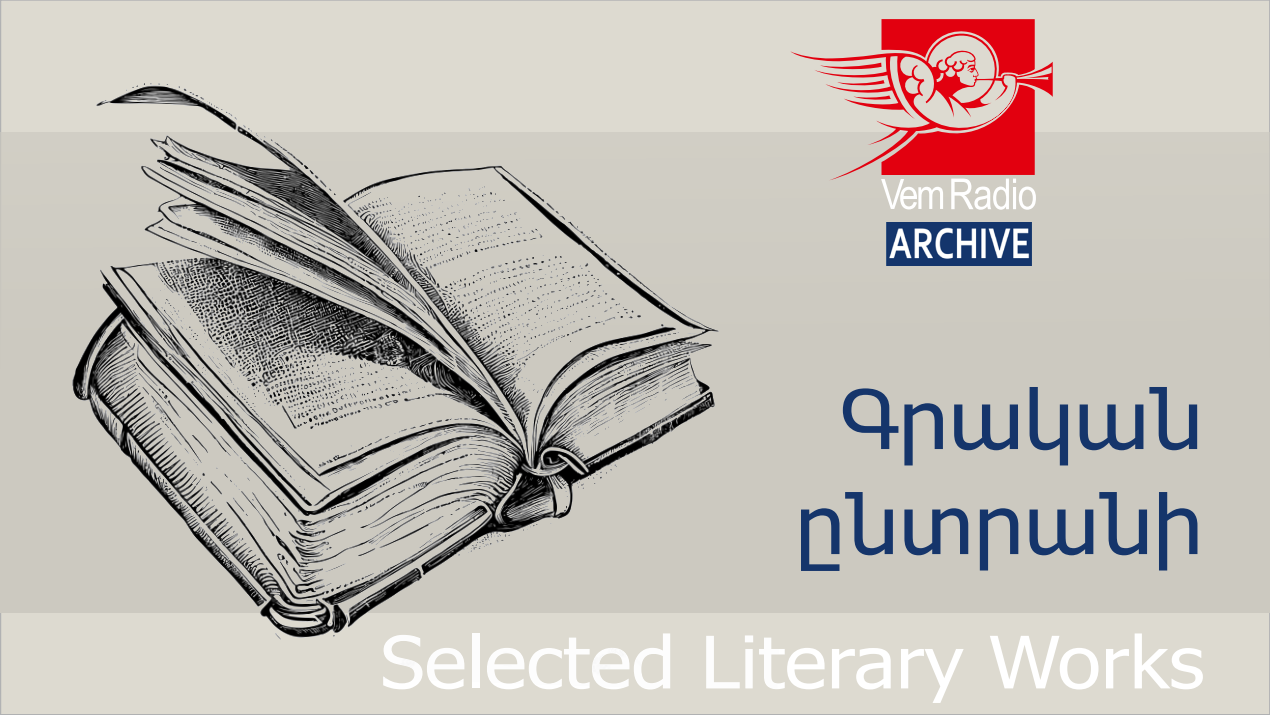
Johannes Becher
The broadcast is dedicated to German poet, prose writer, playwright, art critic, state and public figure Johannes Becher. Living outside his homeland for a decade, he continued creating numerous works in different genres. After returning to Germany in 1945, he continued his wide-scale cultural activities with a fresh enthusiasm: numerous poetic series, 300 sonnets, poems in prose, plays, articles on literary criticism, radio programs. And in the center of all of this it was the life, fate, struggles, and hope of the ordinary human being that interested Becher.

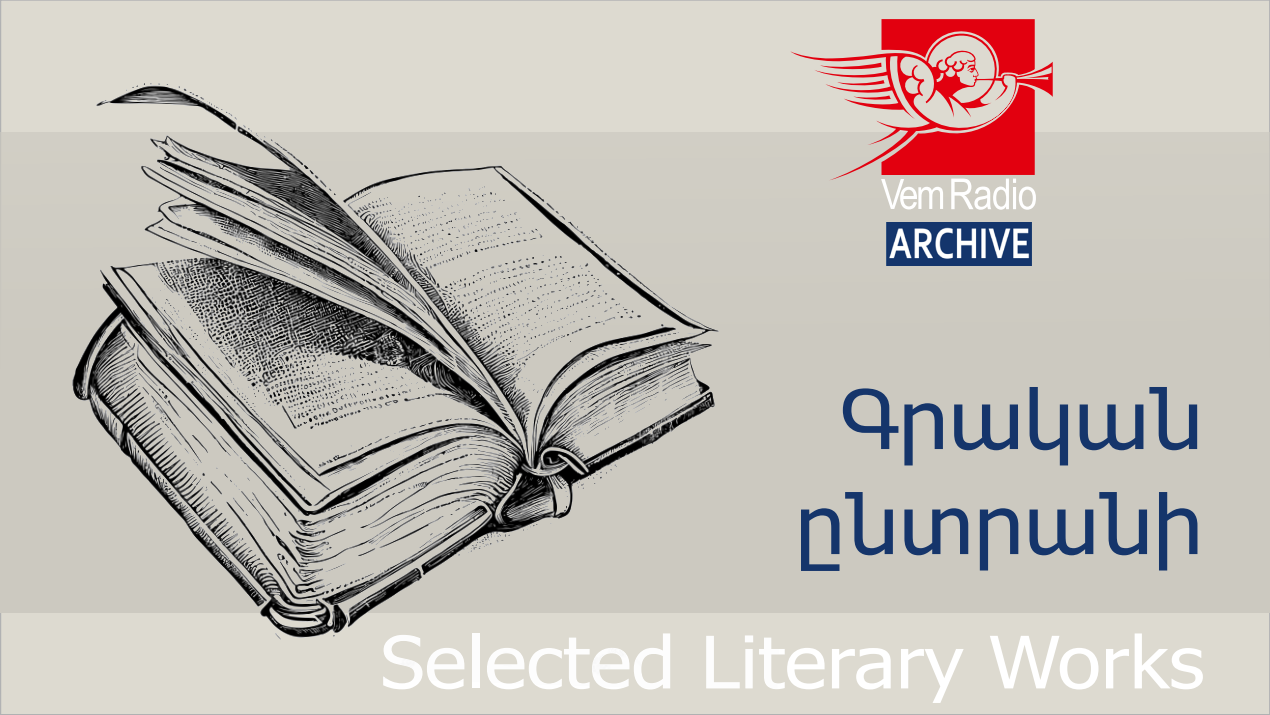
Virginia Woolf
The broadcast is dedicated to the master of impressionist prose, literary critic, theorist of modernism Virginia Woolf, who opened a new stage in the history of English literature. German literary critic and art historian Erich Auerbach compared her with such great writers as Dante, Shakespeare, Flaubert, and Proust. Wolf became famous especially for her novels "Mrs. Dalloway" and "To the Lighthouse" as well as a number of articles of literary criticism. Her works enriched the psychological prose of modern times.

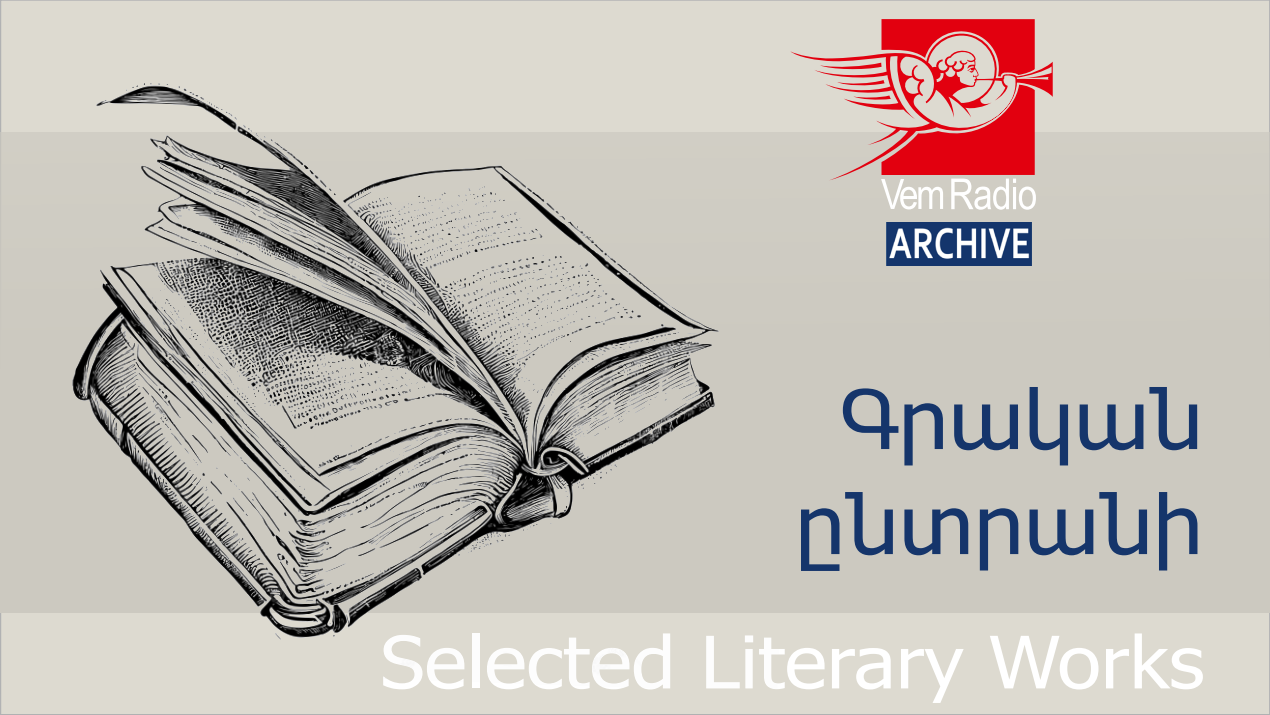
Bertolt Brecht
The broadcast is dedicated to German writer Bertold Brecht, poet, novelist, playwright, art theorist, founder of "epic theater," who spent most of his life in exile. During his short life, he managed to leave a number of valuable works such as the plays "Life of Galileo," "The Good Person of Szechwan," "The Threepenny Opera," "Mother Courage and Her Children," "The Days of the Commune," as well as the prose work "Threepenny Novel" and a number of poems.

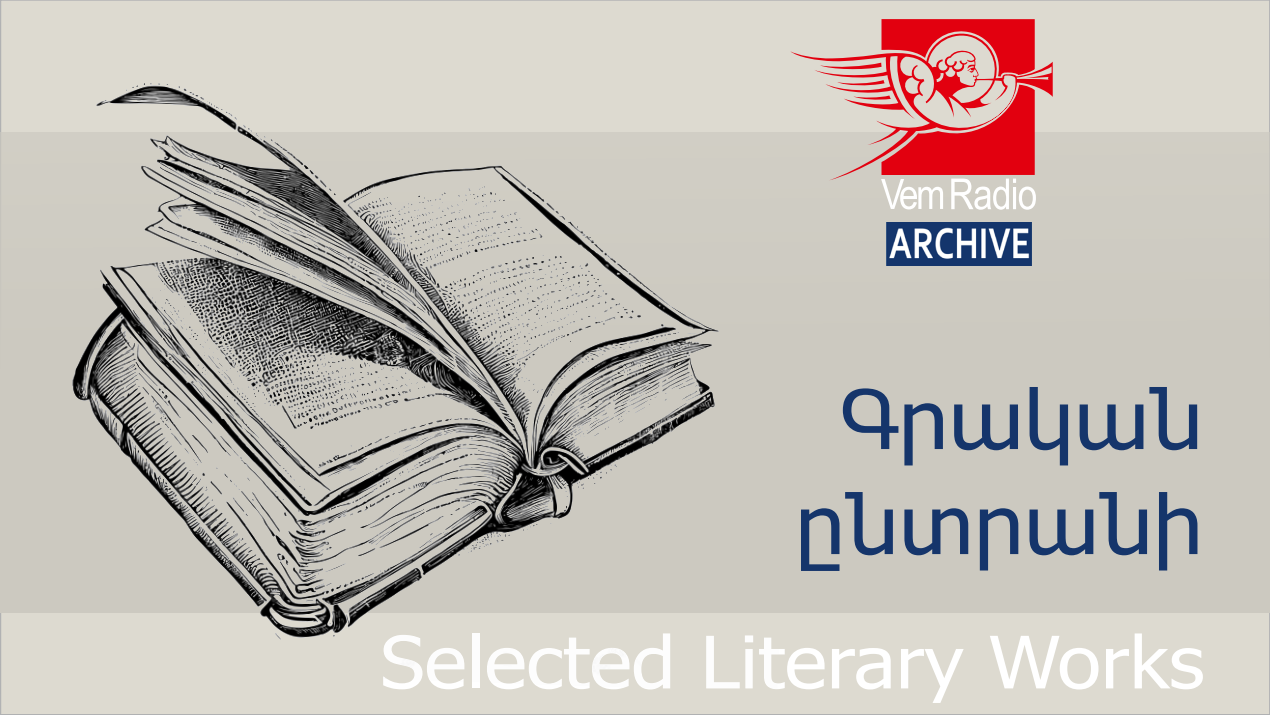
Franz Kafka, "The Castle"
The broadcast is dedicated to the famous novel by Franz Kafka. Written in 1922, this novel arouses great interest with its mysteriousness and unexpected solutions today also. In its basis is the deep contradiction between an individual and the society. K. is like Josef K. of the novel “The Trial” but here the human's dissatisfaction with social customs and with the state laws is more emphasized.

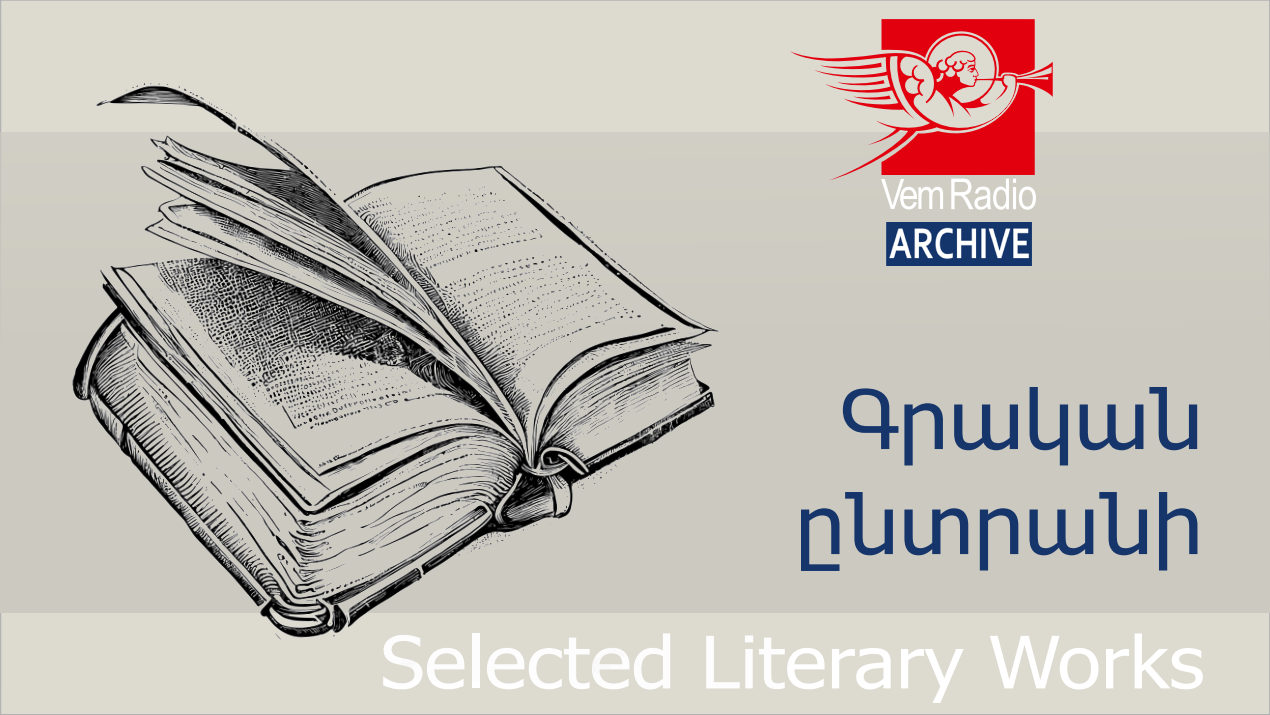
Ezra Pound
The broadcast is dedicated to the Anglo-American poetry school of Imagism and especially to one of its founders, poet, literary theorist and critic Ezra Pound. His work presents the modern American poetry because, as a literary critic and editor of journals, also as a compiler of anthologies, he played a great role in the development and spread of the modern American and European literature.

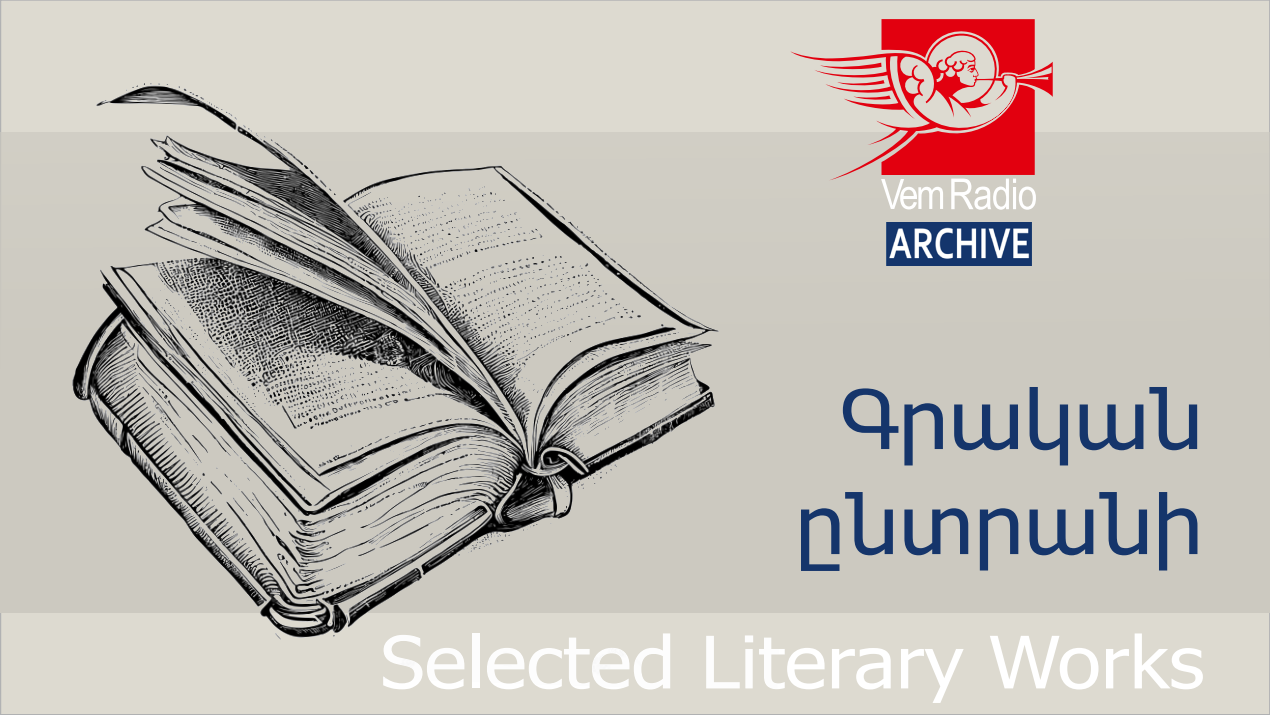
Franz Kafka
The broadcast is dedicated to major German-language writer Franz Kafka and particularly his novel "The Trial," on which about 6,000 literary articles have been written so far. Kafka, an adherent of modernism, added new expressive means to prose − with symbols and ideological saturation.

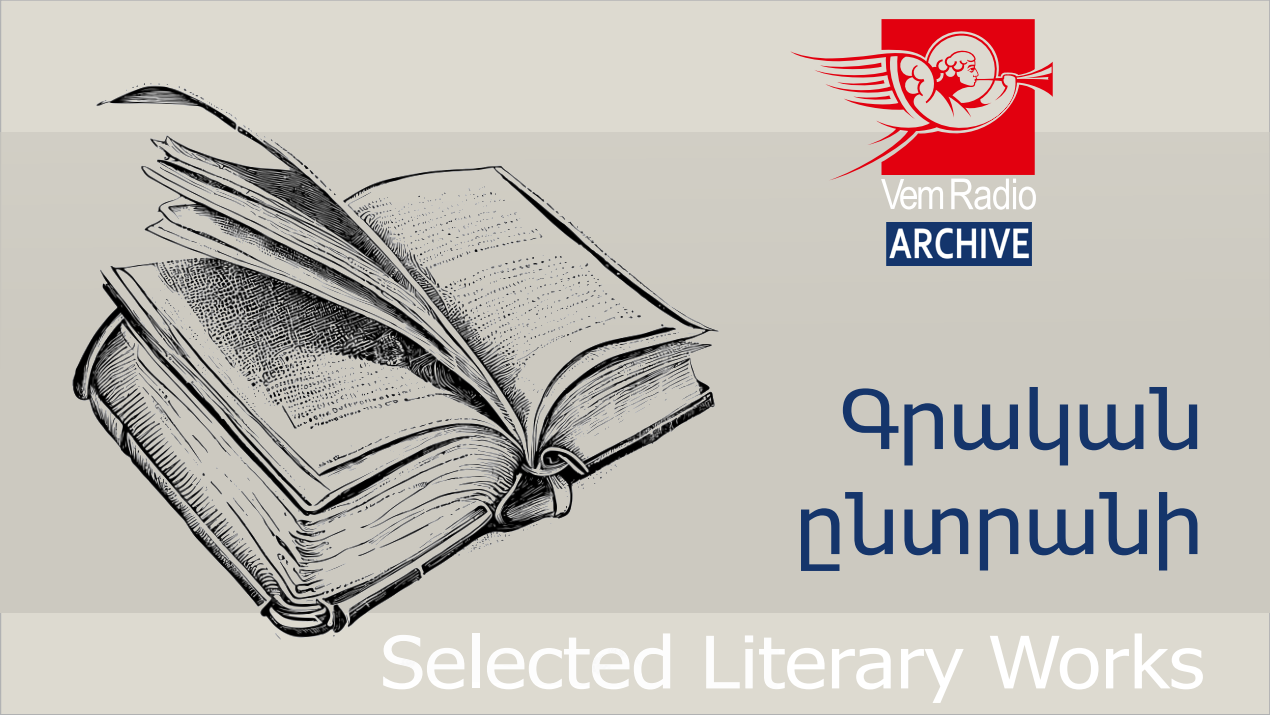
Thomas Mann
The broadcast is dedicated to German writer, novelist, essayist, literary critic, Nobel Prize winner Thomas Mann and particularly to his novel "The Magic Mountain." This work stands out with its deep philosophical analysis. The author of the novels "Buddenbrooks," "Doctor Faustus," and "Joseph and His Brothers" was deeply interested in people's national pain and fate, in all dangers threatening humanity, and in his own time.

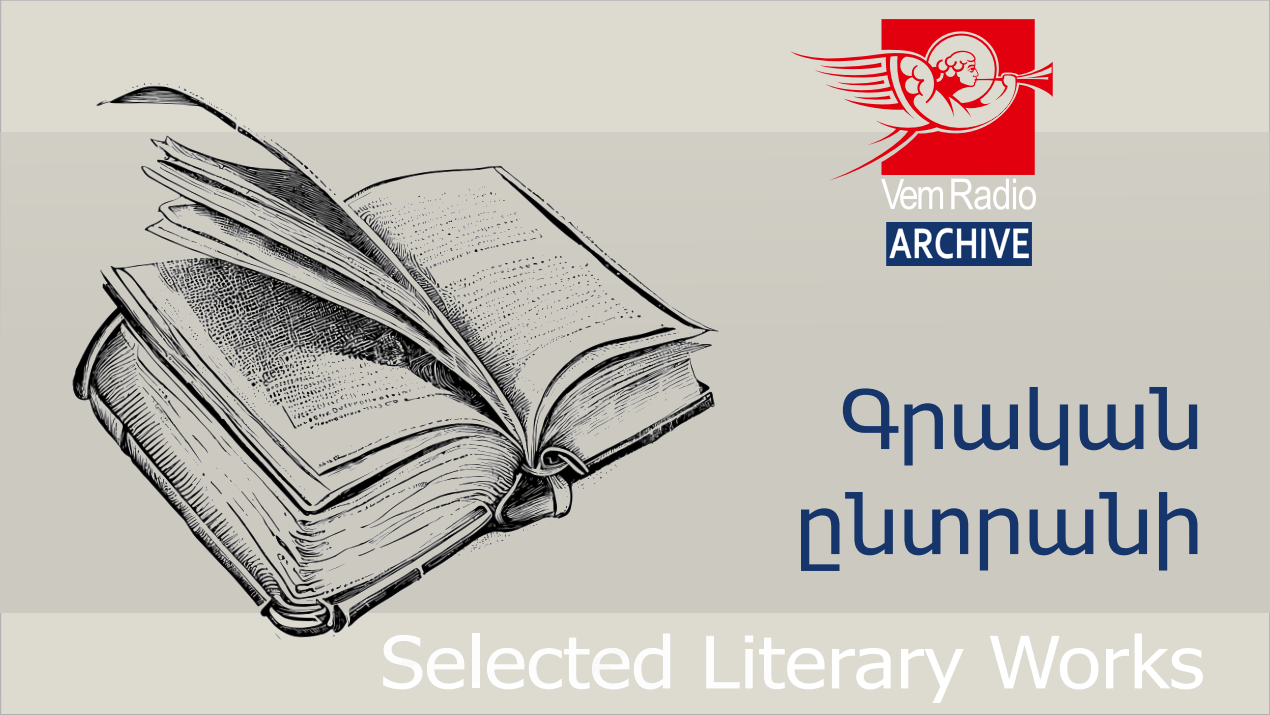
Rabindranath Tagore
The broadcast is dedicated to Indian writer, poet, public figure, art critic, artist, composer, playwright, Novel Prize winner Rabindranath Tagore who was the first person to understand in India that art should be closely connected with people. Revealing the most important character features of Indian people and nailing his attention to pan-national issues, Tagore aspired to raise the ordinary human being, and to inspire his readers to have respect and love toward their nation. With this aim in mind, he sought for ways in his literary works, learned folk songs and dances, and thus skillfully used his nation's talents.

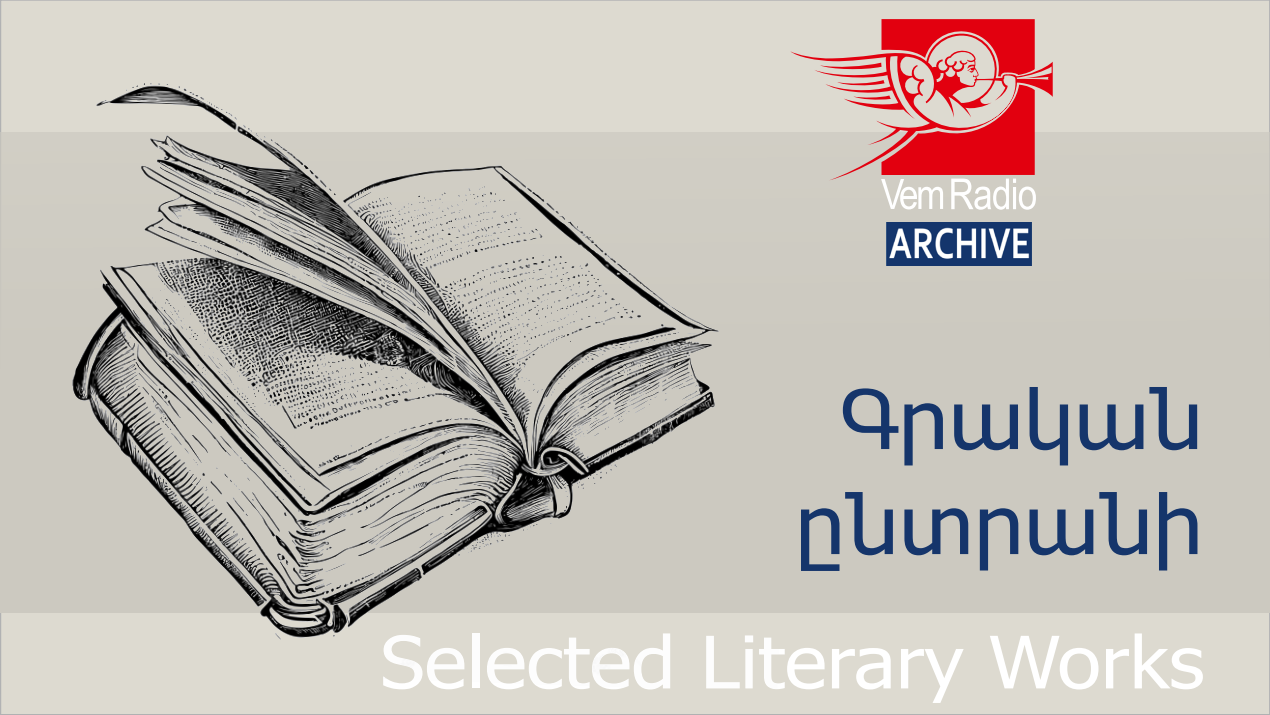
Theodore Dreiser
The broadcast is dedicated to the prominent representative of American literature Theodore Dreiser, who continued the literary traditions of Mark Twain, Frank Norris, and Henry Fuller. He wrote with great courage and ruthlessly against the false myth created about the United States. He gained great fame especially by his most famous novel — "An American Tragedy", by "The “Genius”," a novel about the fate of an artist and art, whose hero sells his talent, as well as by the "Trilogy of Desire," in which the main character considers the law of his desires as the most important thing.

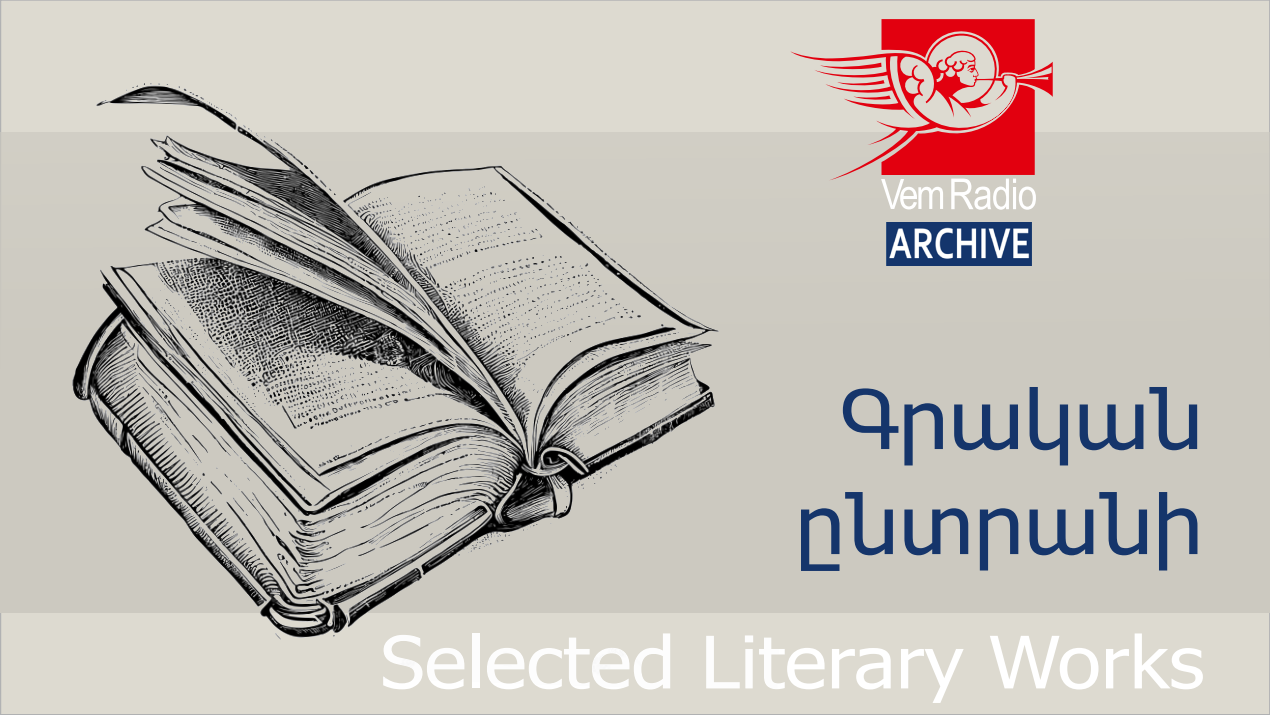
Ernest Hemingway
The broadcast is dedicated to novelist, Nobel Prize winner Ernest Hemingway and his famous novel “The Old Man and the Sea” published in 1952. It is a novel about the human being, life struggle, defeat and victory, a novel that influenced the best literatures of the world.
